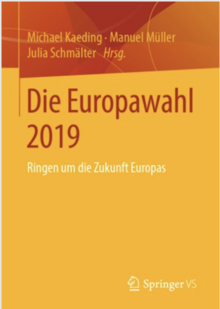Dans un chapitre d’ouvrage collectif, le doctorant Johannes Müller Gómez (Centre Jean Monnet) et son collègue Wolfgang Wessels se sont penchés sur le système politique de l’Union européenne afin d’en expliquer la complexité institutionnelle et procédurale.
RESUME : The European Union (EU) as we know it today can and should be understood as a political system. It has a stable institutional architecture with a mature set of rules, through which binding decisions with immediate effect for the member states and citizens are made. The EU now affects all conventional areas of government action and the everyday life of EU citizens. Through institutionalised mechanisms, in particular the elections to the European Parliament, but also through informal channels, such as the work of interest groups in Brussels, citizens can exert relevant influence on the decisions made at the EU level. Overall, the political system of the EU is characterised by its pronounced institutional and procedural complexity, which is often accompanied by criticism of the lack of transparency and comprehensibility.
À lire ici : https://link.springer.com/referenceworkentry/10.1007/978-3-658-24456-9_100-1
Référence : Müller Gómez, Johannes & Wolfgang Wessels (2020) « Politisches System der EU », dans Werner Weidenfeld, Wolfgang Wessels et Funda Tekin (dir.), Europa von A-Z, Springer.
